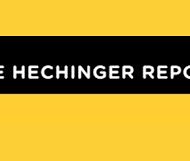Military borrowers continue to face obstacles to getting their student loans forgiven

The Hechinger Report
Steven Yoder
April 22, 2022
Jodie Parks works full time as an occupational therapist at a Michigan state psychiatric hospital. But since October she’s had a second job: spending four hours a week, she estimates, making calls and chasing down paperwork to prove that she previously served in the military.
She needs that proof to have her student loans forgiven under the federal government’s Public Service Loan Forgiveness program, created by a 2007 law that pledged to erase students’ debt if they took lower-paying but critical jobs with nonprofits and the government.
It’s a promise that, for most borrowers, has yet to pay off. Fewer than 2 percent of applicants were approved between 2017, when the first borrowers became eligible, and the onset of Covid-19. And among the huge number of applications denied or lost in the bureaucracy were many from Americans who perform perhaps the ultimate public service: joining the armed forces.
“I’m another veteran who’s been told that there’s a service for veterans, and then when you try to get through the red tape, it’s too hard,” said Parks, who was in the Air Force from 2009 to 2015, stationed in Arizona, Europe and Africa, before leaving the military and getting a degree in occupational therapy. “So you just kind of give up.”
Ninety-two percent of military borrowers who applied for loan forgiveness before the pandemic were denied by the Department of Education, according to the U.S. Government Accountability Office, due to confusing and narrow rules about eligible loan types and repayment plans that made it difficult for them to qualify.
“The law made a promise to people that if they went into public service jobs, they would have their loans forgiven. And a lot of people went to school on that basis,” said Christopher Madaio, vice president for legal affairs at Veterans Education Success, which advocates for military members.
Continue Reading
Share







